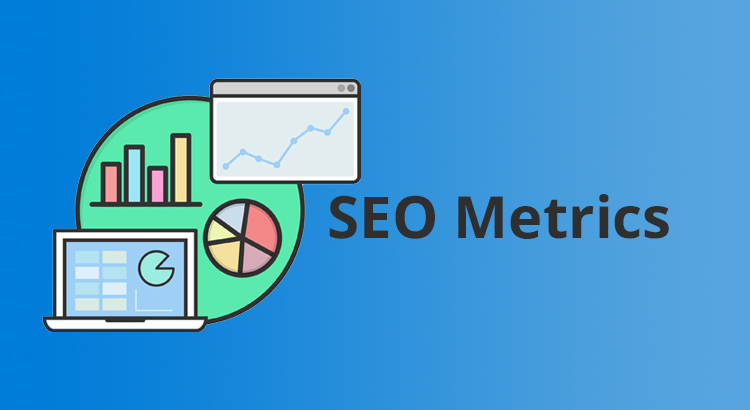Understanding the performance of your website in search engine results is crucial for any online business. This is where SEO metrics comes into play. This blog post will explore the 10 types of SEO metrics that every website owner or digital marketer should be tracking.
What Is SEO Metrics?
SEO metrics encompass a range of quantitative and qualitative data points that evaluate the effectiveness of your website’s search engine optimization strategies.
These metrics offer actionable insights into various aspects of your website’s performance, helping you assess its visibility, relevance, and user experience.
By tracking and analyzing SEO metrics, businesses can identify areas for improvement, refine their strategies, and ultimately drive more organic traffic and conversions.
Most Important SEO Metrics to Track
1. Organic Traffic
Measure the number of visitors coming to your site through search engines without paid promotions, indicating your website’s visibility and appeal to users searching for related content.
2. Keyword Rankings
Track the positions of your website’s pages in search engine results for specific keywords, allowing you to gauge your visibility and competitiveness in search.
3. Search Visibility
Assess the overall presence of your website in search engine results pages (SERPs) for targeted keywords, reflecting your website’s prominence and accessibility to potential visitors.
4. Traffic Value
Quantify the monetary value of your organic traffic by analyzing factors such as conversion rates and revenue generated, helping you understand the ROI of your SEO efforts.
5. Organic Traffic Conversions
Measure the effectiveness of your SEO efforts by tracking the number of conversions, such as purchases or sign-ups, made by visitors who arrived at your site through organic search.
Useful Article: Conversion Rate Optimization: Turning Clicks into Customers for Small Businesses
6. Referring Domains
Count the number of external websites linking to your site, indicating its authority, credibility, and popularity in the eyes of search engines.
7. Indexed Pages
Monitor the number of web pages from your site that search engines have crawled and included in their index, ensuring that your content is being properly recognized and considered for search results.
8. Index Coverage Errors
Identify and address issues that search engines encounter when crawling and indexing your website, ensuring that your content is being properly indexed and displayed in search results.
9. Core Web Vitals
Evaluate the performance of your website based on metrics such as loading speed, interactivity, and visual stability, which impact user experience and search engine rankings.
Learn More: Mastering Core Web Vitals: A Comprehensive Guide to Boost Your Page Ranking
10. Website Health
Assess various aspects of your website’s performance, including speed, mobile-friendliness, security, and usability, ensuring that it meets the technical requirements and user expectations for optimal SEO performance.
SEO Metrics Tools
To track and analyze these SEO metrics effectively, you can use a variety of tools and platforms. Some of the most popular SEO metrics tools include:
1. Google Analytics
Google Analytics is a comprehensive web analytics platform that provides insights into website traffic, user behavior, and conversion metrics.
2. Google Search Console
Google Search Console is a free tool from Google that helps you monitor and optimize your website’s presence in Google search results.
3. WebFX SEO Checker
A tool that analyzes your website’s SEO performance and provides actionable recommendations for improvement.
4. UpCity Free SEO Report Card
A free tool that assesses your website’s SEO health and provides personalized recommendations for optimization.
5. Bing Webmaster
A set of tools from Microsoft that helps you monitor and improve your website’s performance in Bing search results.
6. SEOquake
A browser extension that provides instant access to key SEO metrics and insights for any website.
7. Check My Links
A Chrome extension that checks web pages for broken links, helping you ensure a positive user experience and SEO performance.
8. ContentKing
A website monitoring tool that tracks changes to your website’s content, SEO, and accessibility in real-time.
9. SE Ranking
An all-in-one SEO platform that offers a comprehensive suite of tools for keyword research, rank tracking, and website analysis.
10. Ahrefs
Ahrefs is a powerful SEO toolkit that provides insights into backlinks, keyword rankings, and competitive analysis for any website.
Related Article: 10 Best SEO Tools You Should Use to Increase Organic Traffic
Conclusion of SEO Metrics
Monitoring the right SEO metrics is essential for optimizing your website’s performance and driving organic traffic and conversions. Utilizing a combination of tools and platforms, you can gain valuable insights into your website’s SEO performance and take proactive steps to improve its visibility, relevance, and user experience.
Frequently Asked Questions
Which SEO Metrics Are Important to Track?
The most important SEO metrics to track depend on your specific goals and objectives. However, some fundamental metrics include organic traffic, keyword rankings, search visibility, website health, and conversion rates.
What Are SEO KPIs?
SEO Key Performance Indicators (KPIs) are quantifiable metrics that measure the success of your SEO efforts in achieving specific goals. These may include metrics such as organic traffic growth, keyword ranking improvements, backlink acquisition, and conversion rate optimization.


